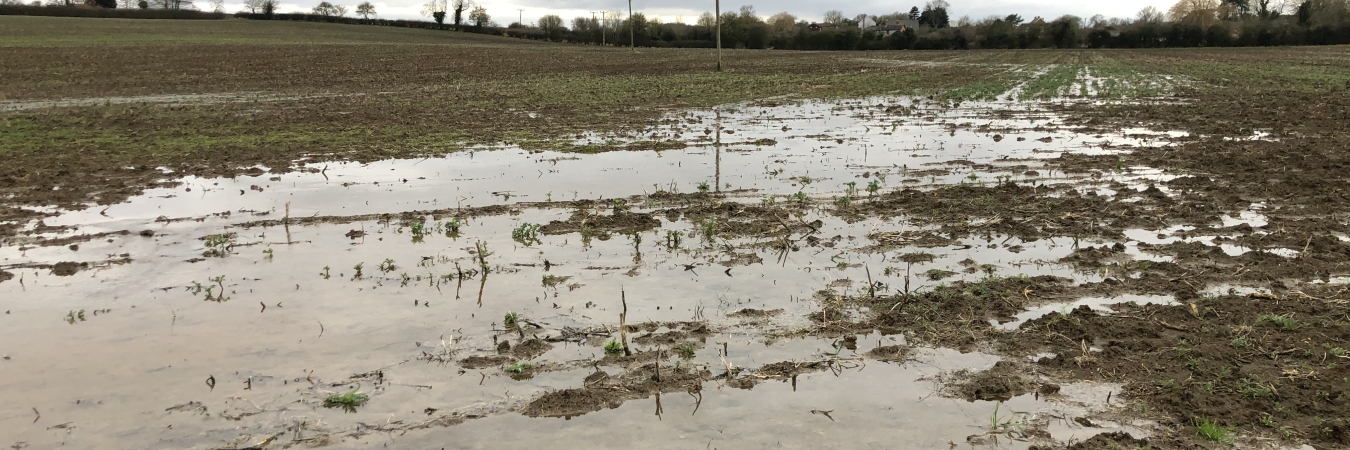From vulnerability to viability: How EU-funded projects help regions on the climate crisis frontline
The need to work together to tackle the climate crisis is more important than ever. Supporting communities whose food, way of life and culture are at risk is essential.
According to the World Bank, more than half of the world population, around 4.5 billion people, are at high risk of experiencing an extreme weather event, such as a flooding, drought, heatwaves, or cyclones. Most of these people live in vulnerable regions – and are the forefront of the climate crisis.
In the face of these unfolding challenge, the 29th UN Climate Change Conference (COP29) takes place on 11 to 22 November 2024 in Baku, Azerbaijan. The event will bring together 198 countries, including both the EU and its Member States, to act now for a safer and climate-neutral future.
The European Research Executive Agency (REA) manages many EU-funded projects that are helping the world’s vulnerable regions. In the context of the upcoming conference and the global climate talks, we highlight some of our key projects below.
Several EU-funded projects will also virtually attend COP29 . OceanICU and SUMMER – will participate in a webinar on the ocean carbon cycle. REFOREST will be part of an event focusing on financing agroforestry.
Where are the vulnerable regions?
From Africa to Asia, from the Caribbean to Oceania – dozens of countries around the world are considered vulnerable, according to the UN. Because of their structural limitations and geographical position, these nations are strongly impacted by the negative effects of climate change and are frequently least equipped to handle them.
At the top of the COP 29’s agenda is the launch of the Climate Finance Action Fund (CFAF). The Fund will be financed with voluntary contributions from fossil fuel producing countries and companies across oil, gas, and coal.
One of the purposes of the Fund is to address the consequences of natural disasters in Small Island Developing States, Least Developed Countries, and to other vulnerable developing communities as needed.
Transformative environmental monitoring in Africa
From flood early warning systems to water reservoir management and plant germination insurance services, the EU-funded TEMBO Africa project designs cost-effective sensor networks. Their ambition is to close the environmental data gap in Africa and increase the level of technological readiness. By directly linking the sensors to new value-creating services, the project aims to ensure long-term financial sustainability.
More about TEMBO Africa.
Safeguarding the Atlantic marine ecosystems
The Atlantic Ocean plays a crucial role in regulating the Earth’s climate. At the same time, it is bordered by a large part of the countries in the vulnerable regions.
The EU-funded MISSION ATLANTIC project brings together scientists, managers and stakeholders from Brazil, South Africa, North America and the EU to identify the ecosystem components most at risk from natural hazards and the consequences of human activities. To support this endeavour, they map, model and assess the Atlantic Ocean’s various ecosystems, their resilience and response to cumulative pressures.
More about MISSION ATLANTIC.
AtlantEco is another EU-funded project aimed at protecting the Atlantic Ocean. It seeks to develop and apply a novel, unifying framework that provides knowledge-based resources for a better understanding and management of the Atlantic Ocean and its ecosystem services.
The project focuses on three pillars of research: microbiomes, plastic and the plastisphere, and seascape connectivity. AtlantECO is bringing together experts and pioneers from Europe, South America and South Africa with the relevant resources, knowledge, and experience.
More about AtlantECO.
Empowering citizens for a sustainable future
Change will not happen unless citizens are involved. The EU-funded MoRe4nature project wants to trigger transformative change in conservation efforts regarding on zero pollution, biodiversity protection and deforestation prevention by including citizens and communities as key actors.
The project is fostering and supporting collaboration and partnerships among citizen science initiatives and authorities to cover data gaps and shape policy monitoring frameworks in Europe, Latin America, Asia, and Africa.
More about More4nature.
Sustainable development of small islands in Europe, Africa and the Indian Ocean
Small island countries are particularly susceptible to climate change, and this negatively impacts their social and economic development. The EU-funded ECO-HERITAGES explores the role of cultural heritage in supporting local economic development and social and environmental resiliencies in Malta, Comoros, Mauritius, Seychelles, Reunion and Mayotte.
The project tackles European and global challenges in informing effective responses to mitigate climate change’s social, economic, and ecological effects.
More about ECO-HERITAGES.
EU policies in support of climate change adaptation and mitigation
It is essential not only to mitigate future climate crises, but also to adapt and respond to the ones we are currently experiencing. EU climate-related legislation and policy initiatives - the European Climate Law, the European Green Deal, Fit for 55 and EU Adaptation Strategy – focus on addressing the root causes and fallout of climate change.
The projects mentioned above support the EU’s climate objectives through research. If you are looking to fund your research for a greener future, check our Horizon Europe page dedicated to climate research.
Together, the EU, its Member States and the European Investment Bank are the biggest contributor of public climate finance to developing economies. In 2022, they have contributed €28.5 billion in climate finance from public sources and mobilised an additional amount of €11.9 billion of private finance.
READ FULL ARTICLE